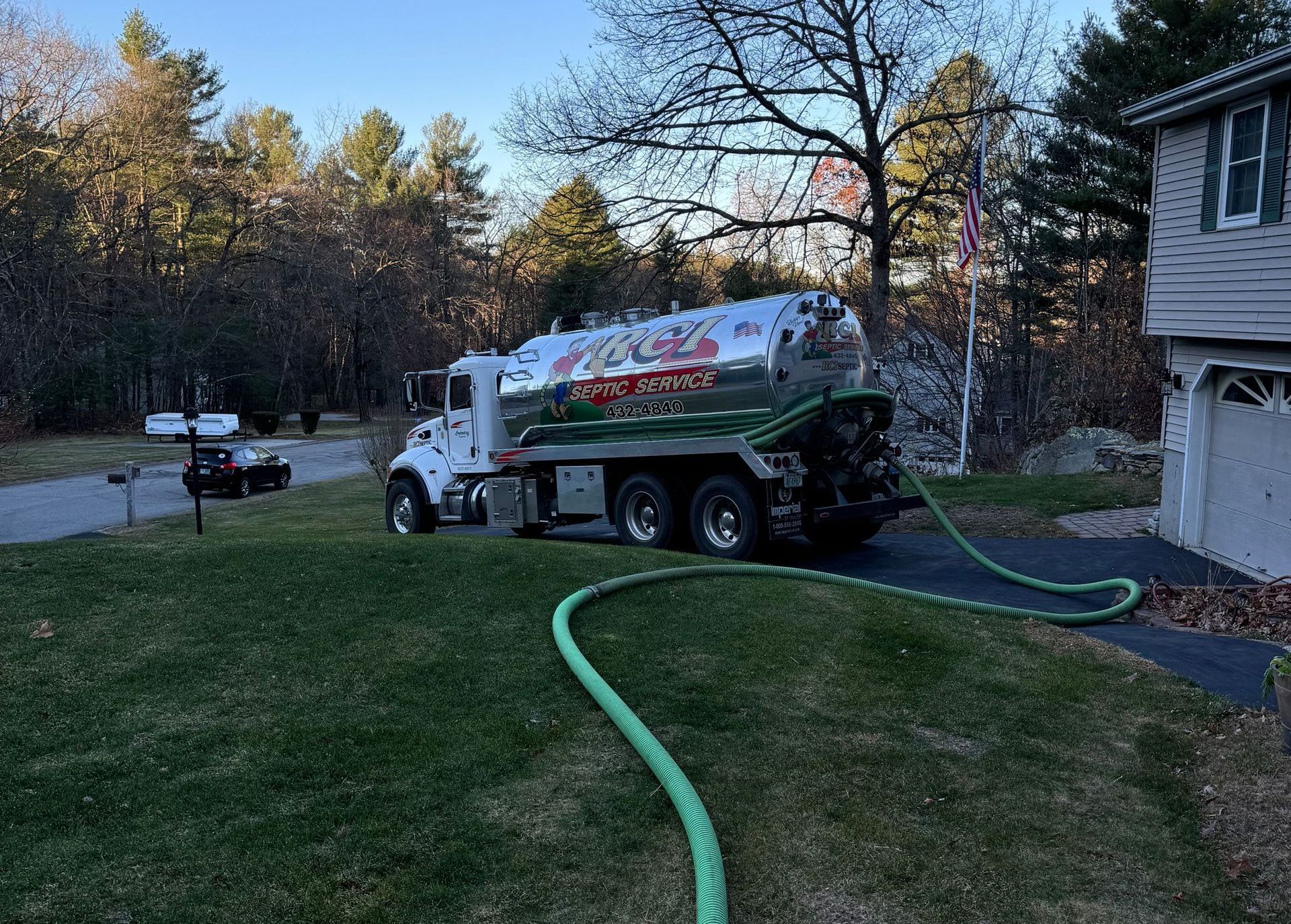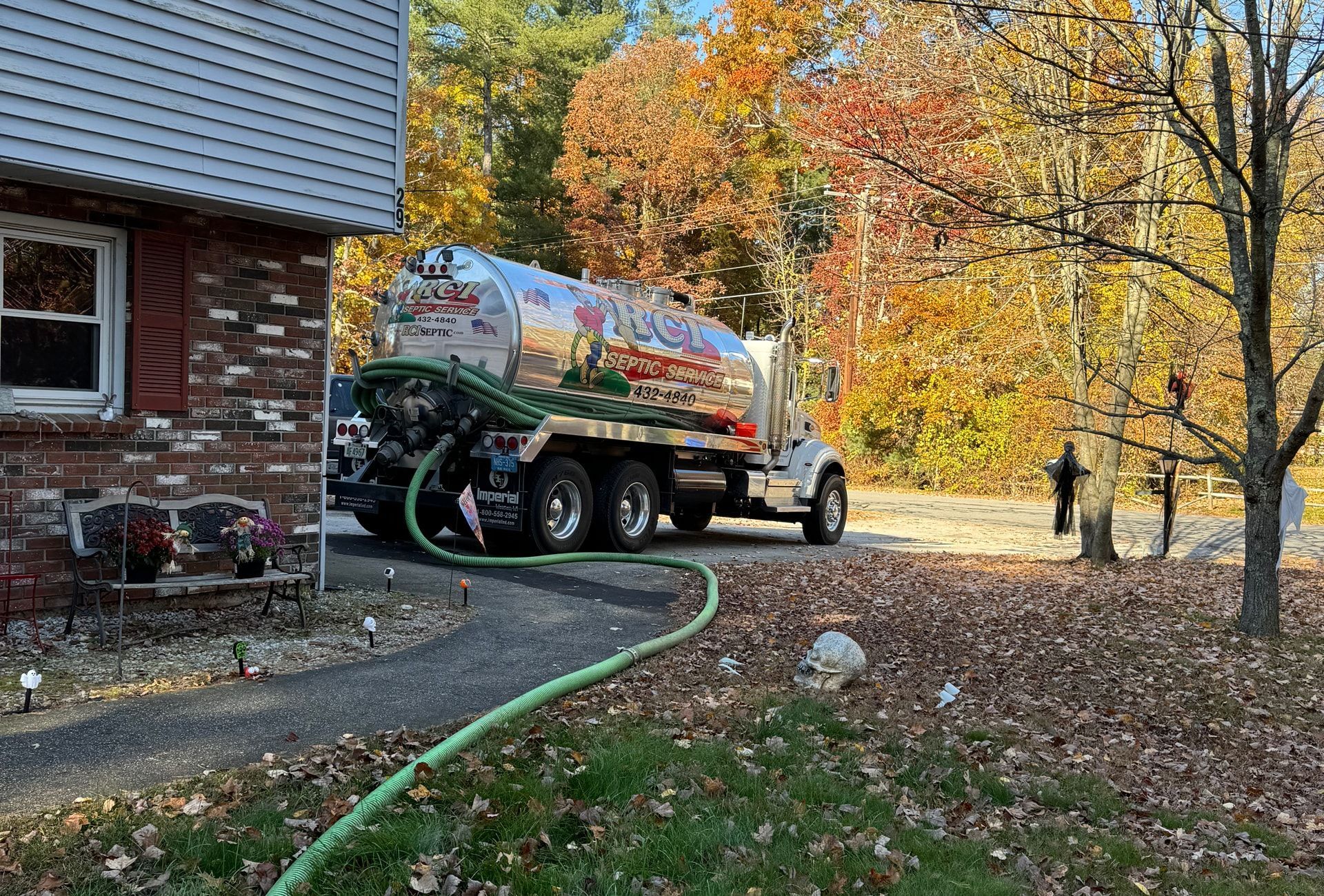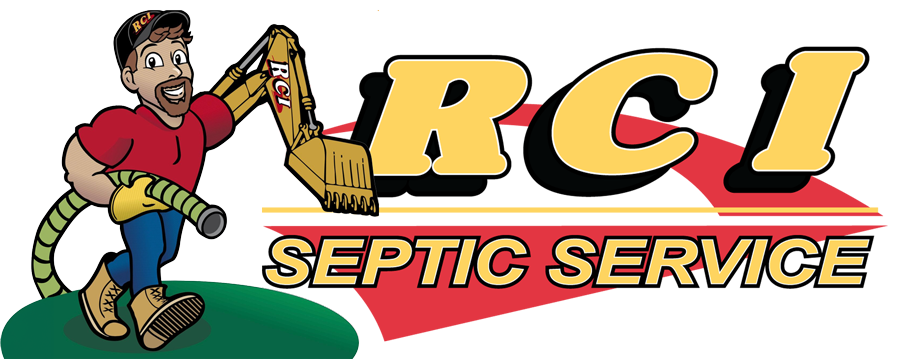Complete Guide to Septic Companies: Services, Selection, and What to Expect
With over 26 million homes in the United States relying on septic systems for wastewater treatment, finding the right septic companies has become crucial for property owners. Whether you're dealing with routine maintenance, emergency repairs, or planning a new installation, professional septic services ensure your system runs efficiently while protecting both your property and the environment.
The septic service industry has grown significantly, with the U.S. market projected to reach $7.0 billion in 2025. This growth reflects not only increased demand but also the critical importance of proper wastewater management in areas without municipal sewer connections. Understanding what septic companies offer and how to choose the right provider can save you thousands in costly repairs while ensuring reliable waste management for years to come.
This comprehensive guide will walk you through everything you need to know about working with septic companies, from understanding their essential services to identifying red flags that could cost you money and headaches down the road.
What Are Septic Companies and Why You Need Them
Septic companies are specialized contractors that design, install, maintain, and repair septic systems for residential and commercial clients. These businesses handle the complex task of managing decentralized wastewater treatment solutions that serve properties not connected to municipal sewer lines.
Professional septic services are essential for several critical reasons. First, local health departments and environmental agencies require licensed professionals to perform most septic work to ensure compliance with stringent regulations. These regulations exist to protect groundwater quality and public health, making professional oversight mandatory rather than optional.
The financial benefits of working with qualified septic companies become apparent when comparing routine maintenance costs to emergency repairs. Regular septic tank pumping typically costs between $300-600, while emergency repairs can easily exceed $3,000-25,000. Most homeowners who skip professional maintenance face expensive system failures that could have been prevented with proper care.
Legal requirements vary by location, but most jurisdictions mandate professional inspections during property transfers, require permits for new installations, and specify that only licensed contractors can perform major repairs. Attempting to handle these tasks without proper credentials can result in significant fines and legal complications.
You should contact septic companies when you notice warning signs like slow drains, gurgling sounds from plumbing fixtures, unpleasant odors around your property, or standing water in your yard. Additionally, routine maintenance should occur every 1-3 years depending on household size and system capacity.

Essential Services Offered by Professional Septic Companies
Professional septic companies provide comprehensive services that keep your waste management system functioning properly. Understanding these services helps you identify what your property needs and ensures you're working with full-service providers.
Septic Tank Pumping and Cleaning
Regular septic tank pumping represents the most crucial maintenance service for preventing system failure. Professional pumping services remove accumulated sludge and scum that naturally build up over time, preventing these materials from clogging your drain field.
Recommended pumping schedules depend on household size and usage patterns. Households with five or more people typically need yearly pumping, while 3-4 person households require pumping every two years. Smaller households of 1-2 people can often extend this to every three years, though heavy usage may necessitate more frequent service.
Professional pumping services include thorough tank inspection, complete waste removal, and basic system assessment. Technicians examine septic tank lids, check for structural damage, and assess the condition of inlet and outlet baffles. Many companies provide detailed reports documenting the system's condition and recommendations for future maintenance.
Signs requiring immediate pumping include sewage backups in your home, strong odors near the septic tank, or visible wet spots in your drain field area. Emergency pumping services typically cost 50-100% more than scheduled maintenance, making regular service both more convenient and economical.
Average pumping costs range from $300-600 for residential tanks, with factors like tank size, accessibility, and regional pricing affecting final costs. Commercial septic tank services for larger systems or grease traps typically command higher rates due to increased complexity and waste volume.
Septic System Installation and Replacement
New septic system installations require extensive planning, permitting, and skilled execution. Professional septic companies handle everything from initial site evaluation and soil testing to final system commissioning and inspection approval.
For new home construction, septic installations typically take 3-5 days once permits are approved. The process includes excavation, tank placement, distribution box installation, and drain field construction. Experienced contractors coordinate with local health departments to ensure all inspections occur on schedule.
Full system replacements for failed systems present more complex challenges. These projects often require emergency pumping of existing tanks, environmental remediation if contamination occurred, and installation of upgraded systems meeting current regulations. Replacement timelines can extend to 1-2 weeks depending on site conditions and permit requirements.
Permitting and inspection requirements vary significantly by location, but most jurisdictions require soil percolation tests, system design approval, and multiple inspections during installation. Professional contractors handle these administrative requirements, ensuring your project meets all regulatory standards.
Timeline expectations for septic installations depend on several factors including permit processing time, weather conditions, and site complexity. Simple installations in favorable conditions may complete within a week, while challenging sites requiring engineered solutions can take several weeks.
Septic Repairs and Maintenance
Common septic problems requiring professional repair include damaged septic tank lids, broken distribution boxes, clogged drain fields, and malfunctioning pump systems. Professional diagnostic services identify these issues before they cause complete system failure.
Emergency repair services provide 24/7 availability for urgent situations like sewage backups or complete system failures. These services typically command premium pricing but prevent property damage and health hazards that could result from delayed repairs.
Preventive maintenance programs offered by many septic companies include regular inspections, minor repairs, and system optimization. These programs often provide cost savings compared to individual service calls while ensuring consistent system monitoring.
Specialized Services
Title 5 inspections and compliance testing ensure your septic system meets current environmental standards. These inspections are often required for property sales and help identify potential issues before they become costly problems.
Septic system locating and mapping services use specialized equipment to identify tank locations, trace distribution lines, and map drain field boundaries. This service proves invaluable when planning property improvements or troubleshooting system problems.
Commercial grease trap cleaning represents a specialized niche serving restaurants, food processing facilities, and other commercial clients. These services require specialized equipment and knowledge of commercial waste management regulations.
Excavation and site preparation services support major repairs and installations. Professional contractors have the heavy equipment and expertise to handle complex excavation while protecting existing utilities and landscaping.

How to Choose the Right Septic Company
Selecting qualified septic companies requires careful evaluation of credentials, experience, and service capabilities. Making the wrong choice can result in poor workmanship, regulatory violations, and expensive remedial work.
Essential licensing and certification requirements vary by state, but all legitimate septic companies must hold appropriate contractor licenses and septic-specific certifications. Verify these credentials through your state licensing board and ensure they're current and in good standing.
Insurance coverage and bonding considerations protect you from liability and ensure financial protection if problems occur. Reputable septic companies carry comprehensive general liability insurance, workers' compensation coverage, and performance bonds for major projects.
Experience factors include years in business, local market knowledge, and specific expertise with your system type. Companies with 10+ years of local experience understand regional soil conditions, local regulations, and common system problems in your area.
Service area coverage and response times affect both routine maintenance and emergency services. Choose septic companies that prioritize your geographic area and can provide prompt emergency response when needed.
Equipment quality and modern technology usage indicate a company's commitment to efficient, professional service. Look for providers with newer pump trucks, diagnostic equipment, and GPS fleet management systems that improve service reliability.
Pricing transparency and estimate practices separate professional operations from questionable providers. Legitimate septic companies provide detailed written estimates, explain all charges clearly, and avoid high-pressure sales tactics.
What to Expect When Working with Professional Septic Companies
Understanding the service process helps you evaluate provider quality and ensures smooth project completion. Professional septic companies follow established procedures that protect both your property and their business reputation.
The initial consultation and assessment process typically includes property inspection, system evaluation, and discussion of your specific needs. Experienced technicians ask relevant questions about system history, household size, and any problems you've experienced.
Detailed written estimates and project timelines provide transparency and accountability. Professional estimates include material costs, labor charges, permit fees, and realistic completion schedules. Avoid companies that provide only verbal estimates or vague timelines.
Professional communication and customer service standards include prompt response to inquiries, clear explanation of work performed, and courteous treatment of your property. Top-tier septic companies maintain regular communication throughout projects and promptly address any concerns.
Property protection and cleanup procedures demonstrate respect for your investment. Professional contractors use protective measures to prevent lawn damage, clean up thoroughly after work completion, and restore landscaping to pre-work conditions.
Follow-up services and maintenance recommendations help maximize your system's lifespan. Quality septic companies provide system operation guidance, schedule future maintenance, and remain available for questions or concerns.
Documentation and record-keeping practices include service reports, inspection certificates, and warranty information. These records prove valuable for future maintenance, property sales, and regulatory compliance.
Benefits of Hiring Established Local Septic Companies
Working with established local septic companies provides numerous advantages over national franchises or out-of-area providers. These benefits stem from their deep community connections and specialized local knowledge.
Local regulation knowledge and permit expertise prove invaluable when navigating complex permitting processes. Local septic companies understand specific health department requirements, permitting timelines, and inspector preferences that can expedite project approval.
Understanding of regional soil conditions and climate factors affects system design and performance. Local contractors know how seasonal conditions, soil types, and groundwater levels impact septic system operation in your specific area.
Established relationships with local health departments facilitate smoother inspections and faster permit processing. These professional relationships, built over years of quality work, benefit customers through reduced delays and streamlined approvals.
Community reputation and customer referral networks provide reliable feedback about service quality. Local septic companies depend on community reputation, making customer satisfaction essential for long-term business success.
Faster emergency response times result from local proximity and community commitment. Local providers typically offer more responsive emergency services compared to distant companies serving large geographic areas.
Long-term service relationships and system history tracking create continuity in system care. Local family owned business operations often maintain detailed customer records spanning decades, providing valuable insights for maintenance and repairs.
Red Flags to Avoid When Selecting Septic Companies
Recognizing warning signs helps you avoid unqualified or unscrupulous providers that could damage your system or financial interests. These red flags often indicate companies operating outside professional standards.
Door-to-door solicitation and high-pressure sales tactics characterize questionable operators seeking quick profits. Legitimate septic companies rarely engage in unsolicited sales calls, preferring to build business through referrals and satisfied customers.
Unusually low bids or cash-only payment requirements often indicate corner-cutting or tax avoidance. While competitive pricing is normal, bids significantly below market rates may reflect poor quality materials, inadequate insurance, or plans to demand additional payments later.
Lack of proper licensing, insurance, or local permits represents serious liability risks. Always verify credentials independently and avoid any contractor unable or unwilling to provide proof of proper licensing and insurance coverage.
Unwillingness to provide written estimates or references suggests unprofessional operations. Professional septic companies readily provide detailed estimates and customer references, understanding that transparency builds trust and demonstrates competence.
Poor online reviews or Better Business Bureau ratings indicate consistent customer dissatisfaction. While isolated negative reviews occur with any business, patterns of complaints about quality, pricing, or professionalism warrant serious concern.
Vague service descriptions or hidden fee structures prevent accurate cost comparison and may lead to unexpected charges. Professional septic companies provide clear service descriptions and transparent pricing without surprise fees or unclear terms.
Questions to Ask Potential Septic Companies
Asking the right questions helps you evaluate provider qualifications and service capabilities. These inquiries reveal important information about experience, reliability, and professionalism.
Licensing and certification verification questions should include requests for license numbers, certification details, and proof of current status. Ask about specific training or certifications relevant to your system type or local requirements.
Experience and specialization inquiries help assess relevant expertise. Ask about years in business, types of systems serviced, and experience with properties similar to yours. Inquire about specific training for your system brand or technology.
Service availability and emergency response policies affect long-term satisfaction. Ask about regular business hours, emergency service availability, typical response times, and after-hours contact procedures for urgent situations.
Pricing structure and payment terms should be clearly understood before work begins. Ask about hourly rates versus flat fees, payment schedules, accepted payment methods, and policies for additional work discovered during projects.
Reference and portfolio requests provide insight into past performance and customer satisfaction. Ask for recent customer references, examples of similar projects, and documentation of successful installations or complex repairs.
Request information about their team qualifications, including technician training, safety certifications, and ongoing education requirements. Professional septic companies invest in team development and maintain high standards for all personnel.
Inquire about their equipment and technology capabilities, including truck specifications, diagnostic tools, and modernization efforts. Companies with updated equipment typically provide more efficient service and better problem diagnosis.
Ask about their approach to environmental protection and regulatory compliance. Responsible septic companies prioritize environmental stewardship and maintain current knowledge of changing regulations.
Finally, request details about their customer service philosophy, communication practices, and procedures for handling concerns or complaints. Companies committed to customer satisfaction have clear policies for maintaining positive relationships and addressing issues promptly.
Conclusion
Working with professional septic companies ensures your wastewater management system receives expert care while protecting your property investment. By understanding what these companies offer, how to choose qualified providers, and what to expect from professional service, you can make informed decisions that keep your septic system running smoothly for years to come.
The time invested in selecting the right septic service provider pays dividends through reliable system performance, regulatory compliance, and peace of mind knowing your waste management needs are handled by qualified professionals. Use this guide's criteria to evaluate potential providers and choose septic companies that offer the expertise, reliability, and customer service your property deserves.


